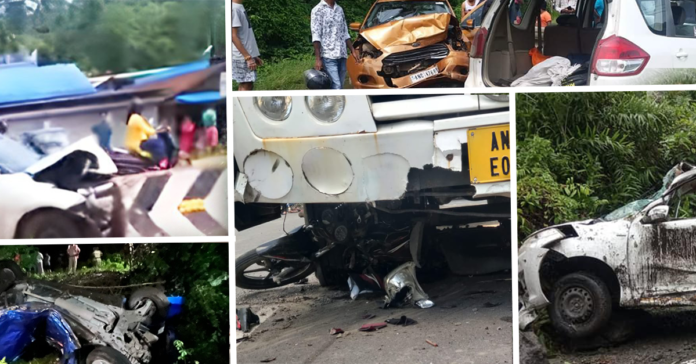In a significant initiative aimed at encouraging citizen action in emergencies, the Ministry of Road Transport & Highways has launched the ‘Rah-Veer’ scheme to reward individuals who help road accident victims within the crucial ‘Golden Hour.’ The scheme has now been formally extended to the Andaman and Nicobar Islands, with the administration calling on the general public to step forward during emergencies without fear of legal entanglement.
Under the Rah-Veer scheme, a financial award of ₹25,000 will be given to any Good Samaritan who assists a critically injured road accident victim and ensures that they reach a hospital within one hour of the incident. The move is designed to not only boost morale but also inspire more people to act quickly and save lives without hesitation.
According to the notification, if multiple individuals help a single victim, the reward will be equally divided among them. In cases where a person helps save multiple victims, the award is capped at ₹25,000 per incident per individual. Each award will be accompanied by an official certificate of appreciation.
At the national level, 10 individuals will be selected annually from among those who received awards throughout the year. These recipients will be honoured with an additional national award of ₹1,00,000 each, making it one of the most robust recognitions for civic heroism in India.
Importantly, the scheme offers strong legal protection for those who step forward to help. As outlined in Section 134A of the Motor Vehicles (Amendment) Act, 2019 and the Good Samaritan rules notified under GSR 294E dated September 29, 2020, individuals who help victims will not be subjected to any legal proceedings without their explicit consent. In the event of a violation of these protections, the Good Samaritan can approach the UT’s Grievance Redressal Committee, headed by the District Magistrate.
This legal immunity is seen as critical to removing one of the key psychological barriers that prevent people from assisting in emergencies. In many instances, fear of police questioning or legal hassles has stopped bystanders from helping accident victims, even when they were in a position to do so.
The Andaman administration has urged its residents to familiarise themselves with the scheme and consider participating in awareness drives to spread the message further. Details of the scheme and how to participate can be accessed on the official websites of the Transport Department of the Andaman and Nicobar Islands and the Ministry of Road Transport and Highways.
The scheme is expected to significantly enhance the survival chances of accident victims in remote areas like the Andamans, where hospital access can be delayed due to geography and infrastructure limitations. Timely help within the Golden Hour can often mean the difference between life and death.
With road accidents continuing to be a leading cause of death across India, the Rah-Veer scheme offers a unique approach to engage citizens as first responders. Authorities hope that the scheme not only saves lives but also helps build a culture of compassion and responsibility in times of crisis.





